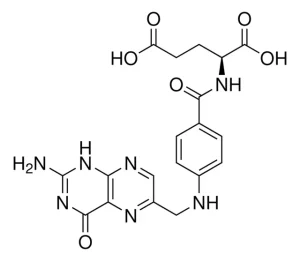
The Importance of Folic Acid for Health and Fitness
Folic acid, a B-vitamin also known as vitamin B9, plays a crucial role in maintaining overall health and well-being. This essential nutrient is particularly significant for those who prioritize fitness and a healthy lifestyle. Folic acid is not only vital for the body’s cellular functions but also supports various physiological processes that enhance physical performance and mental clarity. Understanding the benefits of folic acid can empower individuals to make informed dietary choices that promote optimal health.
One of the most well-known benefits of folic acid is its role in DNA synthesis and repair. This function is particularly important for anyone engaged in regular physical activity, as exercise places stress on the body’s cells. When we engage in strenuous workouts, our muscles undergo micro-tears that require efficient cellular repair for growth and recovery. Adequate levels of folic acid ensure that the body can produce new cells effectively, facilitating quicker recovery times and improved muscle growth. This is especially beneficial for athletes or fitness enthusiasts looking to enhance their performance and achieve their fitness goals.
Moreover, folic acid is essential for the production of red blood cells. These cells are responsible for transporting oxygen throughout the body, which is critical during exercise. When we engage in physical activities, our muscles demand increased oxygen to sustain energy levels and improve endurance. A deficiency in folic acid can lead to anemia, characterized by fatigue and weakness, ultimately hindering one’s ability to perform at their best. By ensuring sufficient intake of folic acid, individuals can support their cardiovascular health and enhance their stamina, allowing them to push through challenging workouts with greater ease.
In addition to its physical benefits, folic acid also plays a significant role in mental health. It has been linked to mood regulation and cognitive function, which are vital components for anyone pursuing a fitness journey. Regular exercise is known to boost endorphins and improve mood; however, mental clarity and focus are equally important for achieving optimal performance. Folic acid contributes to the production of neurotransmitters such as serotonin and dopamine, which are essential for maintaining a positive mood and reducing feelings of anxiety or depression. By incorporating foods rich in folic acid into their diets, individuals can support their mental health, leading to a more enjoyable and fulfilling fitness experience.
For those who are pregnant or planning to conceive, folic acid becomes even more critical. It is well-established that adequate folic acid intake during pregnancy significantly reduces the risk of neural tube defects in developing fetuses. However, this vitamin is not only important during pregnancy; it also supports overall reproductive health for both men and women. In men, folic acid may contribute to healthy sperm production, while in women, it helps regulate menstrual cycles and supports hormonal balance. Therefore, individuals looking to start families should prioritize their folic acid intake as part of a holistic approach to health.
Incorporating folic acid into one’s diet can be both enjoyable and straightforward. Many foods are naturally rich in this vital nutrient, making it easy to include them in daily meals. Leafy greens such as spinach and kale are excellent sources of folate, the natural form of folic acid found in food. Other great options include legumes like lentils and chickpeas, citrus fruits like oranges, avocados, nuts, seeds, and fortified grains such as bread and cereals. By embracing a diverse diet filled with these nutrient-dense foods, individuals can effortlessly boost their folic acid levels while enjoying delicious meals.
For those who may struggle to meet their daily requirements through diet alone, supplements are an option worth considering. However, it’s essential to approach supplementation with care and ideally under the guidance of a healthcare professional. A balanced approach that combines dietary sources with supplements when necessary can help ensure optimal levels of folic acid without the risk of overconsumption.
In conclusion, folic acid is an indispensable nutrient that supports various aspects of health and fitness. Its roles in DNA synthesis, red blood cell production, mental well-being, and reproductive health highlight its importance for anyone striving for a healthier lifestyle. By prioritizing foods rich in folic acid or considering supplementation when needed, individuals can enhance their physical performance while fostering positive mental health outcomes. Embracing this nutrient as part of a balanced diet not only contributes to personal fitness goals but also promotes overall well-being—making every workout session more effective and enjoyable. Ultimately, understanding the significance of folic acid empowers individuals to take proactive steps toward achieving optimal health while cultivating a positive outlook on their fitness journey.
Need your own dietary supplement manufacturer? Extremely competitive rates. We produce it all. Talk to us.
Comments are closed